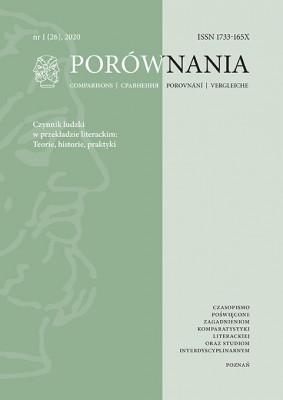The Turing Test for the (Machine) Translation of Poetry
In 1950, the brilliant British mathematician Alan Turing proposed a test to determine a computer’s ability to generate natural language sentences. The computerpassed the test when the human communicating with it by means of a screen was unable to discern if they were talking to another human or to a machine. Today the dynamic development of machine translation software makes us wonder about the possibilities of automatically translating literature, including poetry. Can a computer-generated translation pass for a human one? What linguistic and textual phenomena are most likely to expose the artificial intelligence of the translator? Can the computer-generated translation be viewed as a work of art?
| Article Title | Type | Size |
|---|---|---|
| 17 Studzinska | [pdf] | [124 KB] |
